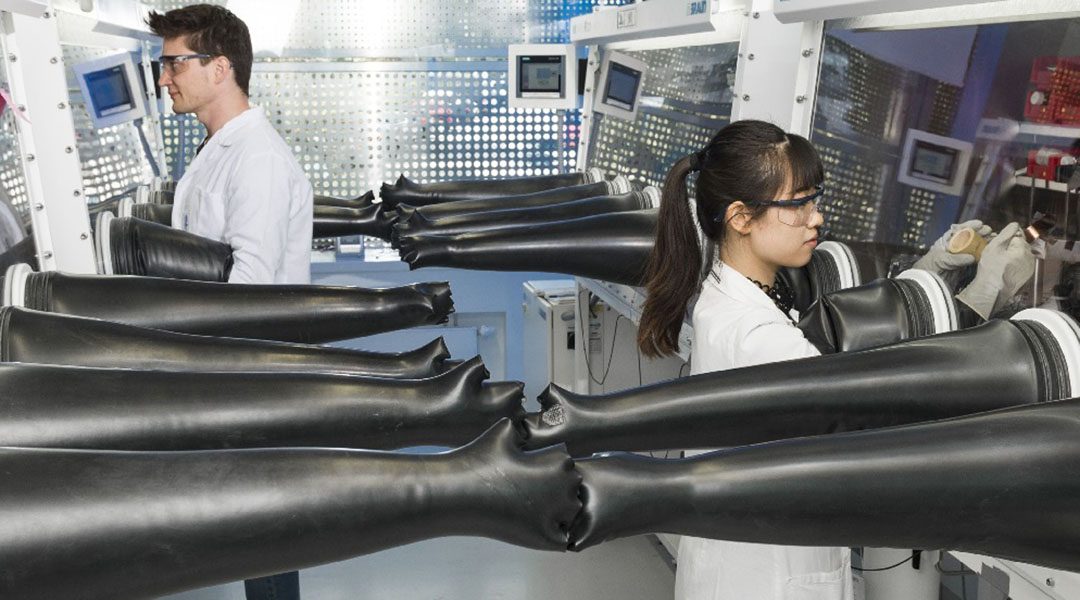A better performance, lower costs, and enhanced safety compared to lithium-ion batteries: these are the hopes of scientists at the Karlsruhe Institute of Technology (KIT) and their cooperation partners in relation to novel magnesium batteries.
Compared to conventional lithium-ion batteries, a magnesium battery has many advantages—magnesium as an anode material increases energy density as well as safety.
“Magnesium is a very promising material and one of the most important candidates for our post-lithium strategy,” says Prof. Maximilian Fichtner, Deputy Director of the Helmholtz Institute Ulm (HIU).
“Wide availability of magnesium batteries might push electrification of mobility and increasing use of decentralized home storage systems.”
To accelerate the development of the novel battery type, HIU cooperates with ten other scientific institutions in the area of battery and materials research within the research project European Magnesium Interactive Battery Community (E-MAGIC).
E-MAGIC is to pool all steps required for the development of magnesium batteries, from fundamental research to cell production processes. Researchers at HIU will work on understanding the obstacles and challenges on the level of materials and on designing new solutions for current problems.
“As regards magnesium batteries, the biggest challenge consists in a long service life,” says Dr. Zhirong Zhao-Karger, who coordinates project-related activities of the solid state chemistry group of HIU.
Apart from the higher safety and energy density, use of magnesium technology for battery production might help reduce the dependence on lithium as a raw material. Compared to lithium, magnesium availability on earth is higher by a factor of 3000.
Moreover, it can be recycled more easily. Consequently, magnesium batteries would also be cheaper than lithium-ion batteries. In the case of quick progress in Europe, magnesium batteries might also help reduce the dominance of Asian manufacturers of battery cells and establish competitive battery production in Europe.

















